Speakers
Inaugural Conference by
Professor Mike Chikindas, Rutgers, The State University of New Jersey, USA
Retrospective and future of bacteriocins
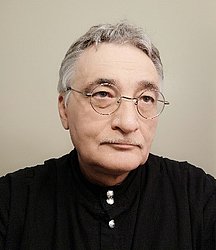
Dr. Chikindas is an applied molecular microbiologist studying natural-derived antimicrobials and probiotics for use in human health, personal care, and agricultural applications. His external funding stems from private industries/organizations such as Bill & Melinda Gates Foundation and from governmental agencies such as NIH, USDA, NSF, Ministry of Science and Higher Education of the Russian Federation, Russian Science Foundation, etc., summing to 23 grants/funded projects he served as a PI or a co-PI, totaling in about $9 million. He co-authored several patents, more than a hundred papers and six book chapters. Dr. Chikindas developed and implemented a number of courses at Rutgers, including Food Microbiology (lectures and lab courses) and Beneficial Microbes in Food and Life. He is co-teaching the graduate level course Food Biology Fundamentals. Dr. Chikindas was a founder of Probiotics and Antimicrobial Proteins, the Springer Nature journal, and served as its Editor-in-Chief for twelve consecutive years. He is a member of the Society for Applied Microbiology (UK) and the American Society for Microbiology (USA). Dr. Chikindas is currently full professor at the Department of Food Science, Rutgers University (USA) as well as a full professor at the Department of General Hygiene, I.M. Sechenov First Moscow State Medical University, Moscow (Russia) and acting as the Head of the Center for Agrobiotechnology, Don State Technical University, Rostov, (Russia).
Dr. Marco van Belkum, Alberta University at Edmonton, Canada
BIC 2023. SUMO-Peptide-Intein expression system as an isolation procedure for bacteriocins
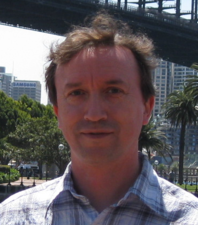
Dr. Marco van Belkum is a Research Associate at the University of Alberta working in the group of John Vederas in the Department of Chemistry. He received his PhD degree in molecular genetics at the University of Groningen. His research focuses on the isolation of enzymes and small peptides, the characterization of novel antimicrobial peptides, as well understanding the mechanisms of bacteriocin secretion and bacteriocin resistance.
Professor Didier Hober, School of Medicine, Lille University, France
BIC 2023. Bacteriocins: they are also of interest to virologists
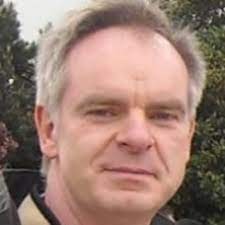
Dr. Didier Hober is currently full University Professor of Virology at the School of Medicine of the University of Lille. He obtained his MD and PhD in virology from University of Lille and he was post-doctoral fellow at UCLA (California, USA) in Pr Benjamin Bonavida. He joined the Service of Virology at CHU Lille as an assistant in 1992. He founded and heads the Department of Virology , School of Medicine University of Lille and the Research Unit « Laboratoire de Virologie ULR3610 » University of Lille and CHU Lille. He heads the “Service of Virology” at CHU Lille. His research studies focused on viral pathogenesis, especially enteroviral pathogenesis of type 1 diabetes and on fighting viruses by various approaches. Dr. Hober published more than 270 papers (H index 49).
Professor Eric Biron, Laval University, Québec, Canada
BIC 2023. Synthesis and pharmacological optimization of bacteriocins for the development of new antimicrobial agents

Dr. Biron joined the Faculty of Pharmacy at Université Laval in 2008 after a postdoctoral fellowship at the Technical University of Munich. His research program focuses on the discovery and development of novel peptide-based antimicrobial agents and natural products using chemical and peptidomimetic approaches. His team's work has recently led to the development of synthetic pathways for several bacteriocins and analogues with improved pharmacological properties and stabilities. One of these analogues is now approved by Health Canada as a food antimicrobial processing agent and is commercially produced.
Dr. Rabah Boukherroub, IEMN – CNRS, Lille, France
BIC 2023. Nanotechnology: A Valuable Tool for Bacteriocin Formulations

Dr. Rabah Boukherroub received a PhD in chemistry from the University Paul Sabatier in Toulouse, France. He is currently a CNRS research director and a group leader at the Institute of Electronics, Microelectronics and Nanotechnology (IEMN), CNRS & University of Lille, France. He is Associate Editor for ACS Applied Materials & Interfaces. His research interests are in the area of functional materials, surface chemistry, and photophysics of semiconductor/metal nanostructures with emphasis on biosensors, nanomedicine, photocatalysis and electrocatalysis. He is a co-author of 700+ research publications, wrote 42 book chapters and co-editor of 10 books in subjects related to nanotechnology, materials chemistry, and biosensors. He has 15 patents or patents pending.
Dr. Beatriz Martínez, IPLA - CSIC, Villaviciosa, Asturias, Spain
BIC2023. Resistance to Bacteriocins: a nuisance or an opportunity?

Dr Beatriz Martínez is a principal investigator at the Dairy Research Institute (IPLA) of the Spanish National Research Council (CSIC). After earning her PhD in 1996 (University of Oviedo, Spain) and holding a postdoc position at TNO-Zeist (The Netherlands), she joined the DairySafe research group at IPLA-CSIC in 2003. She actively supports the research program on bacteriocins produced by lactic acid bacteria and their diverse applications. Her main strategic objectives are: i) sustainable strategies for food preservation based on bacteriocins and bacteriophages, ii) mode of action of- and resistance mechanisms to- species-specific cell wall antimicrobials, iii) understanding how LAB sense and respond to cell wall damage to define gene regulatory networks and develop non-GMO approaches to improve performance of dairy starters.
Professor Djamel Drider, IUT-BIOECOAGRO INRAe, Université de Lille, France
BIC 2023. A new look at the synthesis and transport of bacteriocins
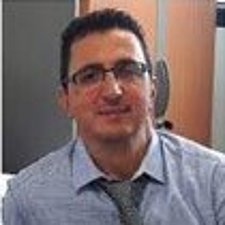
Dr Djamel Drider received a PhD in Food Science with emphasis in microbiology from the Ecole Nationale Supérieure Agronomique de Montpellier, France, and then he completed a postdoctoral position at the CIB-CSIC (Madrid, Spain) and Mount Sinai School of Medicine of New-York University (USA) where he received a training on mRNA stability in Gram-positive bacteria. Djamel joined ONIRIS-Nantes as Associate Professor in Microbiology and then he joined the University of Lille as Full-Professor in Microbiology. Djamel’s research is devoted to beneficial microorganisms, antimicrobial peptides namely bacteriocins for cognitive and applications purposes. Djamel has currently more than 155 published papers, 15 book chapters and 10 patents approved or pending.
Dr. Jacob Palmer, Oxford university, UK
BIC 2023. Evolution of spectrum in antibiotics and bacteriocins
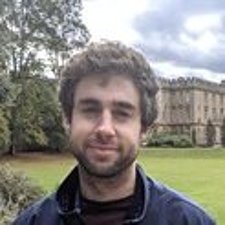
Dr. Jacob Palmer is a postdoctoral researcher at the University of Oxford, in the Departments of Biology and Biochemistry, working in the group of Professor Kevin Foster. His research combines theoretical and experimental methods to understand the ecology and evolution of bacteriocins, and how these toxins shape bacterial interactions across diverse environments. After earning his Bachelor’s from Purdue University, Dr. Palmer completed a PhD in 2019 at the University of Massachusetts Dartmouth with Professor Vanni Bucci, where he studied the siderophore microcins (Class IIb), with primary focus on Microcin H47.
Professor Célia Silva, University of the Azores, Portugal
BIC 2023. Use of bacteriocins and bacteriocin-producing bacteria in active coatings and films
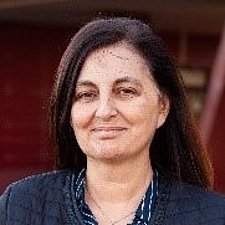
Dr. Célia Silva holds a degree in Biochemistry from the Faculty of Science, University of Lisbon (1988) and a PhD from the School of Animal and Microbial Sciences, University of Reading (UK) in 1998. She is an Assistant Professor with Aggregation in Food Technology at the Faculty of Agricultural and Environmental Sciences, University of the Azores. She is head of the Food Science and Health Group of the Institute of Agricultural and Environmental Research and Technology (IITAA). Her research interests include the microbial ecology of artisanal cheese from the Azores, isolation and characterisation of lactic acid bacteria, characterisation and application of bacteriocins, development of bioactive edible coatings and films, pro/prebiotics, gut microbiome and health.
Dr. Philippe Glaser, Institut Pasteur de Paris, France
BIC 2023. Antibiotic resistance, a one health threat
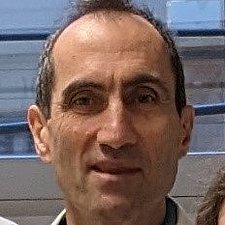
Philippe Glaser, research director at the Institut Pasteur, is heading the Ecology and Evolution of Antibiotic Resistance Unit. He is an expert in bacterial genomics and evolution of antibiotic resistance. He is well known for his genomic-epidemiology studies of Group B Streptococcus both in humans and in animals. He has shown how the extensive use of tetracycline starting in the 1950s has been responsible for the replacement of the GBS population colonizing humans by few tetracycline resistant clones and to the emergence of neonatal GBS infection in the 1960s – 1970s both in Europe and in the US. In collaboration with T. Naas at the Bicêtre hospital he is deciphering the evolution and antibiotic resistance of carbapenemase producing Enterobacteriaceae (mainly E. coli and K. pneumoniae). Together with Belgium veterinarian he is characterizing the transmission of ß-lactam resistant E. coli across farms. He also collaborates with Lulla Opatowski on the modelling of the transmission of antibiotic resistant bacteria. He is co-coordinating with Paola Arimondo (IP) the AMR axis of the Institut Pasteur strategic plan.
Dr. Simon Heilbronner, Tübingen university, Germany
BIC 2023. Metabolic Burdens and Competitive Benefits of Bacteriocin Production within the Nasal Microbiota

Dr. Simon Heilbronner studied Microbiology in Tübingen (Germany) and earned his PhD in Trinity College Dublin (Ireland) working on molecular pathogenesis of staphylococci in 2013. After a postdoctoral period in Tübingen he started his research group funded by the German Centre of Infection Research in 2018. Simon Heilbronner was recently appointed Professor for Microbiology at the LMU in Munich (Germany). His research investigates the molecular interactions of staphylococcal pathogens with the nasal microbiota. Here the role of antibacterial molecules as well as nutritional interactions form the major focus of his group.
Dr. Jaap Broos, University of Groningen, The Netherlands
BIC 2023. Engineering of bacteriocins using unnatural amino acids
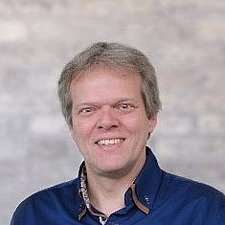
Jaap Broos got his Ph.D. degree in 1994 at the University of Twente, In the same year he was appointed at a tenure track position in enzymology at the University of Groningen, The Netherlands. In 1997 he became assistant professor and is since 2009 associate professor at the University of Groningen. A central theme in his group is the biosynthetic incorporation of amino acid analogs in proteins or peptides, in this way changing their bioactivity and/ or facilitating their biophysical characterization. Protocols have been developed for using Lactococcus lactis as expression host for the efficient incorporation of amino acids analogs in a protein or peptide.
Prof Sylvie Rebuffat, Museum of Natural History, France
BIC 2023. Unforgettable Gram-negative bacteriocins: mechanisms and potential
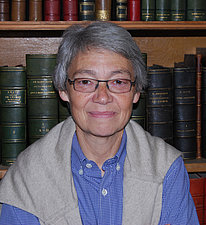
Dr Sylvie Rebuffat studied chemistry and biochemistry at the University Pierre and Marie Curie-Paris 6 (presently Sorbonne University) in Paris. She obtained a Professor position at the National Museum of Natural History in Paris in 1997. She founded the Laboratory Molecules of Communication and Adaptation of Microorganisms (MCAM) that she directed over the period 2007-2017. She set up in 2011 the Direction of Research, Expertise and Technology transfer of the MNHN (Direction de la Recherche, de l'Expertise et de la Valorisation, DiREV) that she directed until 2016. She is associate Professor at the University Laval (Québec, Canada) since 2018. Since 2020 she is Professor emeritus of the MNHN in the MCAM laboratory. Over years Sylvie Rebuffat studied the structures and mechanisms of action of several groups of toxic or antimicrobial compouns from fungi and bacteria, such as mycotoxins from Penicillium or antifungal peptides of the peptaibol group from Trichoderma fungi. She contributed to studies on metabolites from gliding bacteria at the Gesellschaft für Biotechnologische Forschung in Braunschweig (Germany). Since 2000 she is studying with her group at MCAM the molecular aspects of the adaptive processes and defence mechanisms developed by bacteria, and more specifically the antimicrobial peptides (microcins and other bacteriocins) that bacteria use as weapons for competition in various ecosystems, such as the gut microbiota.
